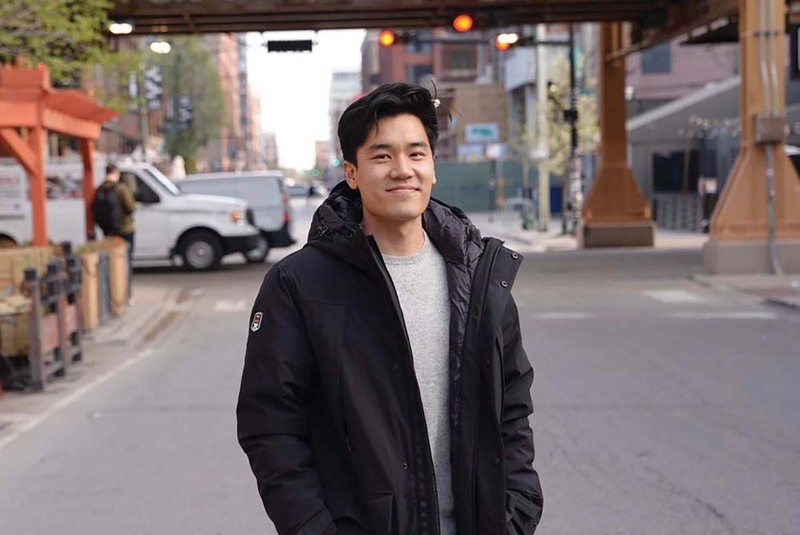
When Jackson Jhin ’17 looks back on his trajectory as a business leader, he identifies a key thread running through it: taking risks.
The 28-year-old founder and CEO of Protégé, an online platform that allows aspiring artists to pay to receive feedback from musicians and actors, Jhin, who majored in international economics
and Italian, is living up to his own entrepreneurial aspirations after almost four years in leadership roles at the celebrity video-messaging service Cameo.
Protégé’s portfolio of experts includes actor Jason Alexander and musicians DJ Khaled and H.E.R. Several clients have signed deals with labels fronted by those mentors. The company charges $10- $200 per interaction based on the mentor’s status — Protégé takes a 25 percent commission for the connection while the rest goes to the star. Applicants receive feedback on a 60-second audition video and may get a chance to produce with an artist.
Jhin, who lives in Chicago, shares his memorable moments of risk-taking, what he values about helping amateur musicians get noticed, and how it felt to be a young CFO getting side-eye due to his age.
You’ve said that your life is marked by risk-taking. How so?
When I was growing up in Houston, I joined the Boy Scouts of America, and we had to tackle a project one time that we could choose. Most scouts chose something like painting a park bench. I decided to put on a benefit concert where admission was a protein bar we would donate to a local food bank. My friends and staff said, “Whoa, that’s too ambitious, that’s not a great idea.” But I did it anyway. We ended up getting up to more than 300 people checking out the bands, and I started getting comfortable with the idea that if you work at something, you can make difficult things happen.
When you worked at venture capital firm Chicago Ventures, how did you convince colleagues to invest in Cameo?
And there’s the second risk I took. At Chicago Ventures, I found out about the guys at Cameo seeking funding, and I introduced the idea to my colleagues. But right away, they shot the idea down, saying I should find something “more mature” and “less Gen Z.” But I kept pushing. Because there was something there with Cameo, and by the time that eighth email crossed my boss’s inbox, he relented, and they took a meeting with Cameo. Chicago Ventures later wrote them a check for $100,000.
But I went a step farther while at Chicago Ventures. I really liked what Cameo was doing, so I approached the founders and asked them to put me on their board. Which is unheard of for someone so young at the time. They could have opted for someone more senior than me at the firm. They said sure, especially since I was the point person at CV working with Cameo and I believed in them from the beginning.
But you didn’t stop there, did you?
[Laughs] No, I didn’t. A year later I asked to be their CFO. They agreed, and it was challenging at first, being so young at 24 and managing people older than me. I remember there was one employee at Cameo who complained that I didn’t have enough credentials. And that could’ve really gotten to me, made me feel like I was set up for failure. But I held strong.
Another risk you took was leaving Cameo in the middle of the pandemic, when it was doing 10 times its usual business.
Everyone at Cameo knew I wasn’t there long-term. I made it clear that at some point I wanted to start my own company. Something I always yearned to make was a way to not just access celebrities but also their time and knowledge. I was so fixated on this concept, which would be open to anyone, that I wondered what that kind of belonging would create. I realized that talent is everywhere, opportunity is not.
Protégé has around 30,000 users. Why do people pay to reach artists in this way?
Consider a classroom setting. A professor teaches students on how to improve, to offer feedback, and it’s also a chance for the students to impress their teachers. A lot of people need coaching, and getting that advice from someone you respect and admire can be powerful.
nterview by David Silverberg, a freelance journalist, editor and writing coach based in Toronto. He writes for The Washington Post, BBC News, MIT Technology Review and other outlets. Find him on X @SilverbergDave.